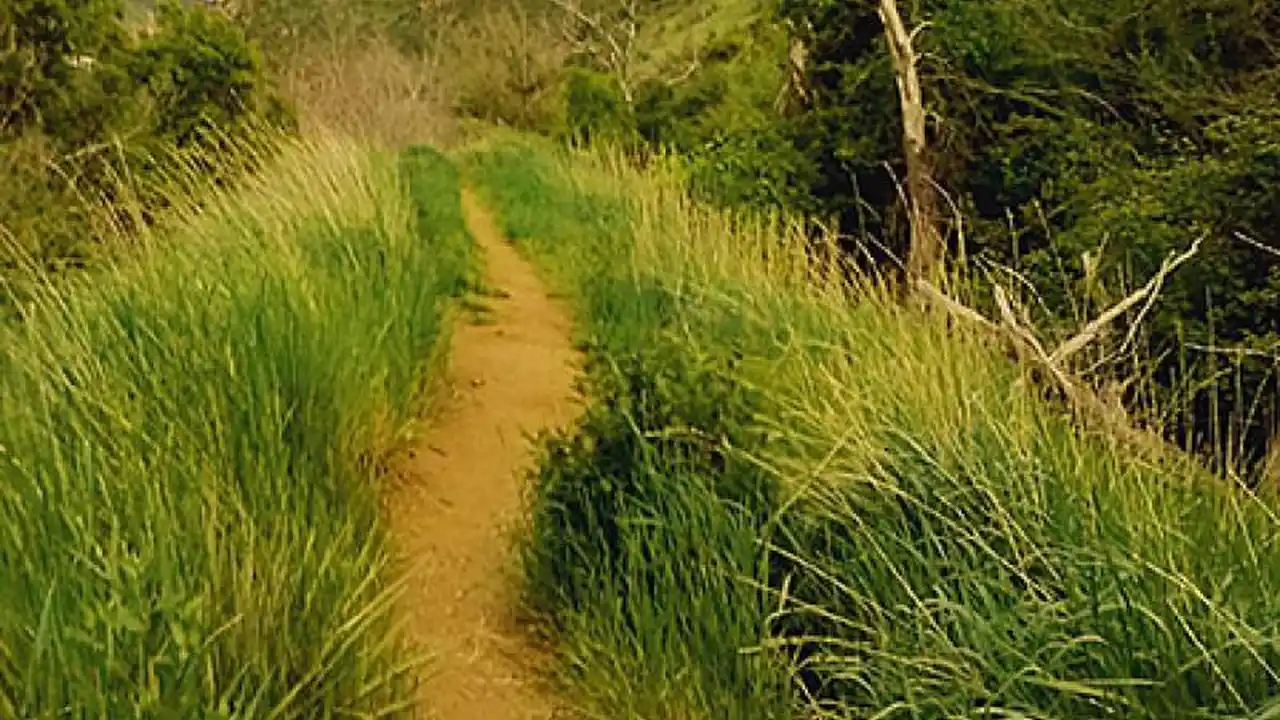Couchsurfing Sustainable Travel Option
Discover sustainable travel hacks to save money and reduce your environmental impact. Learn tips for transportation, accommodation, and food choices. Travel responsibly on a budget with these eco-friendly hacks.

Introduction Eco-Friendly Travel Tips
Alright, wanderlusters! So you want to see the world, but you're also trying to be kind to it and your wallet? Totally doable! Sustainable travel doesn't have to break the bank. In fact, it can often *save* you money. Let's dive into some seriously useful hacks to make your adventures both eco-friendly and budget-friendly.
Transportation Hacks Reduce Travel Costs
Getting around can be a major expense. Here's how to keep those costs down while minimizing your carbon footprint:
Slow Travel Cheaper Options
Consider the pace of your journey. Instead of hopping on multiple flights, opt for slower travel methods like trains or buses. Not only are they often cheaper, but you also get to see more of the landscape along the way. Think about it – a scenic train ride through the Swiss Alps versus a cramped airplane cabin? No brainer!
Utilizing Public Transport Savings
Become a public transport pro! Download local transit apps to navigate cities like a local. Many cities offer day passes or weekly passes that are much cheaper than taxis or ride-sharing services. Plus, you'll be supporting public infrastructure and reducing emissions.
The Magic of Walking and Biking City Exploration
Seriously, don't underestimate the power of your own two feet (or two wheels!). Walking and biking are free, fantastic exercise, and allow you to truly experience a place. Many cities offer bike-sharing programs, which are a super affordable and eco-friendly way to get around. Check out apps like Lime or Bird to find scooters and bikes easily.
Carpooling Ride Sharing Opportunities
If you absolutely need a car, consider carpooling. Apps like BlaBlaCar connect drivers with passengers heading in the same direction, splitting the cost and reducing the number of cars on the road. It's a win-win!
Accommodation Hacks Affordable Green Stays
Finding a place to stay doesn't have to involve expensive hotels. Here are some budget-friendly and eco-conscious alternatives:
Camping Embracing Nature
Camping is a classic budget travel option, and it's incredibly eco-friendly. Many campsites are located in stunning natural settings, allowing you to connect with nature. Just remember to practice Leave No Trace principles: pack out everything you pack in, stay on marked trails, and respect wildlife.
Hostels Community and Savings
Hostels are a fantastic option for solo travelers and budget-conscious adventurers. They offer dorm-style accommodation at a fraction of the cost of hotels. Many hostels are also becoming increasingly eco-conscious, with initiatives like recycling programs, energy-efficient lighting, and locally sourced food.
Couchsurfing Connecting with Locals
Couchsurfing connects travelers with locals who are willing to offer a free place to stay. It's a great way to experience a place from a local's perspective, learn about the culture, and save money on accommodation. Just be sure to read reviews carefully and communicate clearly with your host.
House Sitting Unique Travel Experiences
Consider house sitting! You get to stay in someone's home for free in exchange for taking care of their pets or property. Websites like TrustedHousesitters connect homeowners with responsible travelers. It’s a great way to experience a different lifestyle and save a ton on accommodation.
Food Hacks Eating Sustainably on a Budget
Food costs can quickly add up while traveling. Here's how to eat well without breaking the bank or harming the planet:
Local Markets Fresh Produce
Skip the tourist traps and head straight to the local markets. You'll find fresh, seasonal produce at much lower prices than in supermarkets. Plus, you'll be supporting local farmers and reducing your carbon footprint.
Cooking Your Own Meals Save Money
If your accommodation has a kitchen, take advantage of it! Cooking your own meals is much cheaper than eating out every night. Pack some basic spices and ingredients, and hit up the local market for fresh produce.
Embrace Vegetarian and Vegan Food Choices
Meat is generally more expensive and has a higher environmental impact than plant-based foods. Embrace vegetarian or vegan options to save money and reduce your carbon footprint. Many cultures have delicious vegetarian dishes, so be adventurous and try something new!
Packing Snacks Reduce Waste
Pack your own snacks to avoid buying expensive and often unhealthy snacks on the go. Bring reusable containers and fill them with nuts, seeds, dried fruit, or homemade granola bars.
Gear Hacks Eco-Friendly Travel Products
Having the right gear can make your sustainable travel journey easier and more enjoyable. Here are some recommendations:
Reusable Water Bottle Stay Hydrated
Ditch the plastic water bottles and invest in a reusable one. There are tons of great options on the market, from stainless steel to glass to collapsible silicone bottles.
* **Hydro Flask:** A durable, insulated stainless steel bottle that keeps drinks cold for up to 24 hours. Price: $30-50. Best for hiking and outdoor adventures.
* **Nalgene Tritan:** A classic, BPA-free plastic bottle that's lightweight and durable. Price: $10-15. Great for everyday use and travel.
* **Nomader Collapsible Water Bottle:** A lightweight, collapsible silicone bottle that's perfect for packing. Price: $20-30. Ideal for saving space in your backpack.
Compare the Hydro Flask, known for its insulation, with the Nalgene, prized for its durability and lower cost. The Nomader excels in portability, making it a top choice for minimalist packers.
Bamboo Utensil Set Reduce Plastic Use
Carry your own bamboo utensil set to avoid using disposable plastic cutlery. Many sets come with a fork, spoon, knife, and chopsticks, all in a convenient carrying case.
* **To-Go Ware Bamboo Utensil Set:** A complete set with a fork, spoon, knife, and chopsticks, all in a durable bamboo carrying case. Price: $15-20.
* **Bambu Veneerware Utensil Set:** A more affordable option made from sustainably harvested bamboo. Price: $10-15.
The To-Go Ware set often features a more robust case, while Bambu Veneerware is favored for its simplicity and lower price point.
Solid Toiletries Eco-Friendly Packing
Switch to solid toiletries like shampoo bars, conditioner bars, and solid toothpaste. They're lightweight, TSA-friendly, and eliminate the need for plastic bottles.
* **Lush Shampoo Bars:** A wide variety of shampoo bars for different hair types, all made with natural ingredients. Price: $10-15.
* **Ethique Conditioner Bars:** Conditioner bars that are concentrated and long-lasting, eliminating the need for plastic bottles. Price: $15-20.
Lush offers a broader range of scents and formulations, while Ethique is known for its commitment to sustainability and ethical sourcing.
Hacks for Sustainable Activities
Choose activities that support local communities and protect the environment.
Eco-Tours Support Local Businesses
Opt for eco-tours that are run by local guides and prioritize sustainability. Look for tours that minimize environmental impact, support local communities, and educate travelers about the local ecosystem.
Responsible Wildlife Tourism Protect Animals
Avoid wildlife tourism activities that exploit animals. Choose responsible wildlife encounters that prioritize animal welfare and conservation efforts. Look for sanctuaries and rehabilitation centers that are dedicated to protecting animals.
Leave No Trace Principles Protect Nature
Whether you're hiking, camping, or simply exploring a new place, practice Leave No Trace principles. Pack out everything you pack in, stay on marked trails, and respect wildlife. By following these principles, you can help protect the environment for future generations.
Planning Hacks Sustainable Travel Resources
Take advantage of online resources and apps to plan your sustainable travel journey.
Sustainable Travel Apps Reduce Impact
Use apps like HappyCow (for finding vegetarian and vegan restaurants), Maps.me (for offline maps), and Too Good To Go (for rescuing surplus food from restaurants and cafes) to make more sustainable choices on the road.
Travel Blogs Eco-Friendly Inspiration
Read travel blogs and websites that focus on sustainable travel. They often offer valuable tips, recommendations, and inspiration for planning your own eco-friendly adventures. Some great resources include Green Global Travel, The Broke Backpacker (for budget travel tips), and Responsible Travel.
Supporting Local Communities Ethical Travel
Whenever possible, support local businesses and communities. Stay in locally owned guesthouses, eat at local restaurants, and buy souvenirs from local artisans. By supporting local businesses, you can help boost the local economy and promote sustainable development.
:max_bytes(150000):strip_icc()/277019-baked-pork-chops-with-cream-of-mushroom-soup-DDMFS-beauty-4x3-BG-7505-5762b731cf30447d9cbbbbbf387beafa.jpg)






